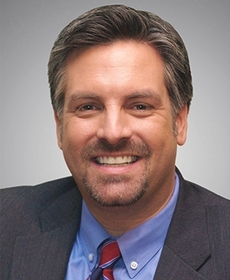New Hampshire is the most economically free state in North America and in the United States, once again edging Florida to top every Canadian province, U.S. state and Mexican state as ranked by the Fraser Institute, Canada’s free-market think tank.
The Fraser Institute’s 2023 Economic Freedom in North America report, released in partnership with the Josiah Bartlett Center for Public Policy, measures government spending, taxation and labor market restrictions using data from 2021, the most recent year of available comparable data.
New Hampshire surpassed Florida as having the highest level of economic freedom in the U.S., having scored 7.96 out of 10 in this year’s report. Rounding out the top five freest states are Florida (2nd), Tennessee (3rd), Texas (4th) and South Dakota (5th). Puerto Rico came in last with 2.85. The least free states were New York (50th), California and Vermont (tied for 48th), Oregon (47th) and Hawaii (46th).
The Granite State also topped the list of all states in North America, scoring 8.14 out of 10, followed by Florida (8.07), South Carolina (8.06), and then Idaho and Indiana, tied for fourth (8.05). Alberta is the highest-ranking Canadian province, tied for 31st place with a score of 7.90.
“New Hampshire is proof for all of North America that economic freedom creates maximum opportunity and prosperity,” Josiah Bartlett Center President Andrew Cline said. “The formula is proven, and anyone can follow it. Even Vermont, if it wants to.”
“The freest economies operate with comparatively less government interference, relying more on personal choice and markets to decide what’s produced, how it’s produced and how much is produced; as government imposes restrictions on these choices, there’s less economic freedom and less opportunity for prosperity,” said Fred McMahon, the Dr. Michael A. Walker Research Chair in Economic Freedom at the Fraser Institute and report co-author.
The report includes an all-government ranking, which adds federal government policy to the index and includes the 50 U.S. states and the territory of Puerto Rico, 32 Mexican states, and 10 Canadian provinces.
Taking into account both federal and state policies, U.S. economic freedom declined from 2003 to 2011, began to recover, and then declined again after 2017. The last two years have seen the lowest levels of measured economic freedom in the U.S. in the last two decades. And while the U.S. remains more economically free than Canada, the gap is relatively small.
“The evidence is clear—lower levels of economic freedom are associated with less prosperity, slower economic growth, less investment, and fewer jobs and opportunities,” said Dean Stansel, economist and research associate professor at Southern Methodist University and co-author of the report.
The Economic Freedom of North America report, also co-authored by José Torra, the head of research at the Mexico City-based Caminos de la Libertad, and Ángel Carrión-Tavárez, director of research and policy at the Instituto de Libertad Económica in Puerto Rico, is an offshoot of the Fraser Institute’s Economic Freedom of the World index, the result of more than a quarter-century of work by more than 60 scholars, including three Nobel laureates.
See the full report at www.fraserinstitute.org/economic-freedom.
New Hampshire’s cores in key components of economic freedom (from 1 to 10 where a higher value indicates a higher level of economic freedom):
- Government spending: 8.25
- Taxes: 7.68
- Labor Market Freedom: 7.60
About the Economic Freedom Index
Economic Freedom of North America measures the degree to which the policies and institutions of countries support economic freedom. This year’s publication ranks 93 provincial/state governments in Canada, the United States and Mexico. The report also updates data in earlier reports in instances where data has been revised.
For more information on the Economic Freedom Network, datasets and previous Economic Freedom of North America reports, visit www.fraserinstitute.org. And you can “Like” the Economic Freedom Network on Facebook at www.facebook.com/EconomicFreedomNetwork.
Download the entire report here: EFNA-2023-US.






